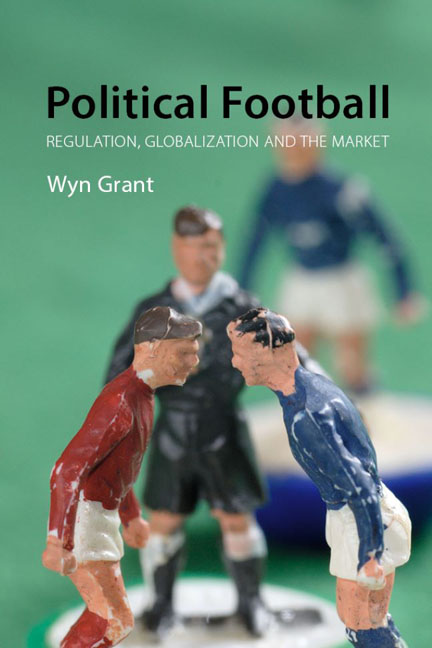5 - Football and gambling
Published online by Cambridge University Press: 20 December 2023
Summary
In November 2020 the chairman of the EFL, Rick Parry, said that partnerships with betting companies were worth L40 million and an immediate ban would be “potentially catastrophic” (Off the Pitch 2020). His statement emphasizes just how reliant football clubs have become on their financial relationships with betting companies, a relationship that has attracted increasing criticism from advocacy groups and the media and attention from government.
An activity that at one time was seen as a source of innocent pleasure, betting is now recognized as potentially harmful and addictive. Like smoking, alcohol addiction and sugar, betting has become the focus of increased government regulation on its marketing, advertising and tax in recognition of the social harm it can cause (Grant 2018: 52–6). Industries that face such criticism often try to head off direct government intervention by trying to make a case for self-regulation and voluntary levies based on partnership with government. Responsibility for reducing harm, they argue, should rest with the individual addict rather than the industry or society more generally.
The betting industry's political vulnerability was apparent with the success of the campaign against fixed odds betting terminals (FOBTs). Campaigners against them described them as the “crack cocaine” of gambling, arguing that the quick-fire plays and the high stakes involved encourage customers to chase losses. The gambling industry argued that use of FOBTs could be a symptom rather than a cause of problem gambling. The government secured substantial tax revenues from the machines while the industry claimed restrictions on the machines would result in the closure of betting shops. Despite the efforts of the industry, the advocacy campaign was successful and the maximum stake was reduced to L2 (Grant 2018: 56–60).
There has been a long relationship between football and betting. At one time the football “pools” were a significant part of people's lives in the UK. “As late as 1998, 34% of all adults were players” (Forrest 1999: 161). Coupons would be carefully filled in seeking to predict draws, later score draws, in the hope of winning a life-changing prize.
- Type
- Chapter
- Information
- Political FootballRegulation, Globalization and the Market, pp. 87 - 104Publisher: Agenda PublishingPrint publication year: 2021

